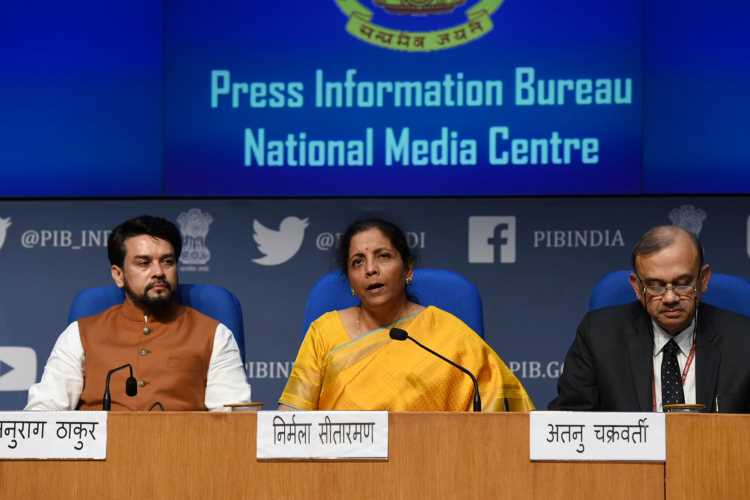
The Union Budget seems to be a big gamble. It hopes that the different sectors would respond favourably to the tax concessions offered. But it is to be seen whether this would work. It is a sorry picture that the government fails to take cognizance of the fact the projected growth for 2019-20 has not materialized. Even when they keep their expectations of nominal GDP growth in the forthcoming year at 10%, the approach of the government towards addressing issues relating to bolstering demand in the system towards tackling issues of unemployment lacks imagination.
All the supply-side measures in the form of the concessions to the corporates to the extent of Rs 1.5 lakh crore in the previous financial year has had no impact on the sagging investment ratio of the economy. Now to add to the concessions, finance minister Nirmala Sitharaman has extended direct tax concessions costing the exchequer a revenue loss of further Rs 65,000 crore. If the government is serious about enhancing consumption, one simply fails to make sense of the audacity with which the MGNREGA allocations are kept stagnant.
READ: Budget 2020 — FM has made the right moves; govt must avoid distractions
As it is, due to the lacklustre nominal GDP growth of 7.5% in the ongoing financial year, as against the 12.5% projected, the revised estimates show that the tax revenues have fallen from the projected Rs 24.6 lakh crore to Rs 21.63 lakh crore, a shortfall of over Rs 3 lakh crore.
Would it not have been rather wise for the government to have gone ahead with last upscaling of public expenditure, staying put with the existent tax rates in an economy which has far lower tax-GDP ratios compared to the rest of the world. The air of uncertainty constrains households from spending and the sagging demand pulls down investment spending. With protectionism, the markets abroad are best not to count upon. Shouldn’t the government spend? If infrastructure bottlenecks were redressed in a faster manner through enhanced capital expenditure, this could have crowded in more private investment.
In an era where the favourable yields in the international financial markets have enabled many Indian big corporates to borrow cheap in the international financial markets, access to funds is not the issue. Paradoxically, the enhanced borrowings through the issue of debt securities and bonds are happening not to add to capital expenditure, but to pre-pay the debts incurred earlier. As corporates go through this process of deleveraging and the banks are in a once-bitten twice shy mode of being reluctant to lend, it would be too much to assume that such concessions would work.
READ: Budget 2020 — A critical reading of Economic Survey
Even now the government counts on the failed model of PPP, which barely works in recessionary phases. Worst, it is extending the same beyond infrastructure to the fields of higher education and health. Coming to the figures, even with its own projected 10% nominal GDP growth, for meeting the fiscal objectives, it heavily counts on the disinvestment receipts through big-ticket sales including that of the largest state insurer, LIC. All this heavily counts on the buoyancy of the domestic financial markets. Paradoxically in the very year where all the macroeconomic indicators have been on the downturn has witnessed the Sensex crossing 40,000. Indeed, given the signs of recovery in the United States, and the possible shifts in the US monetary policy, would the buoyancy in the emerging markets continue? If coupled with the same the price of oil too witnesses an increase, the government would be forced to move to another level of cluelessness.
(Krishnakumar S teaches economics at Sri Venkateswara College, University of Delhi)
Krishnakumar S is a New Delhi-based economist. He teaches economics at Sri Venkateswara College, University of Delhi.

